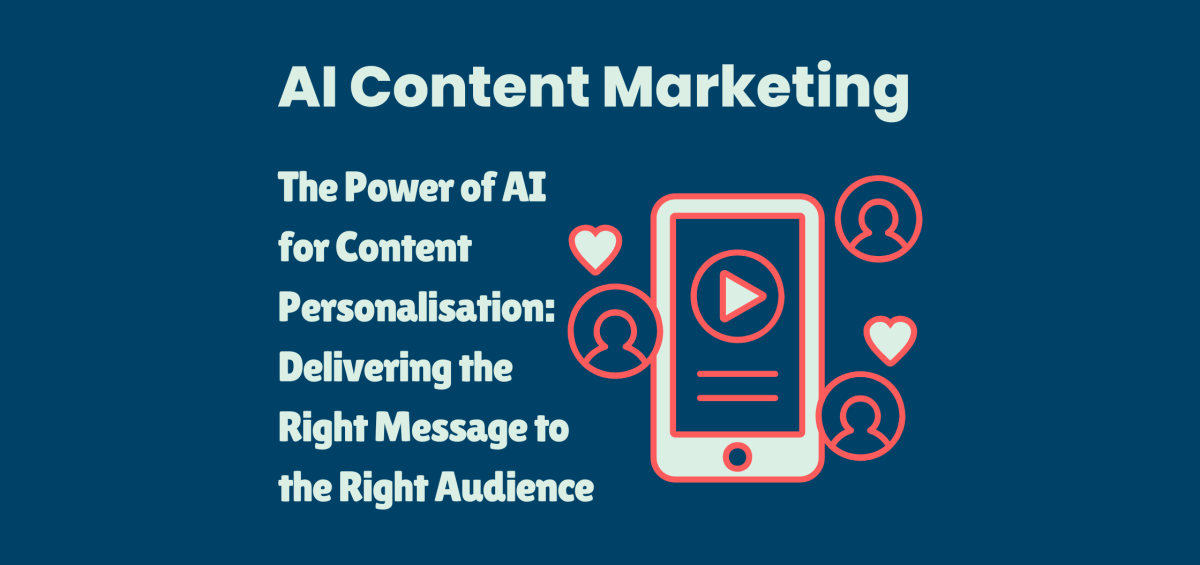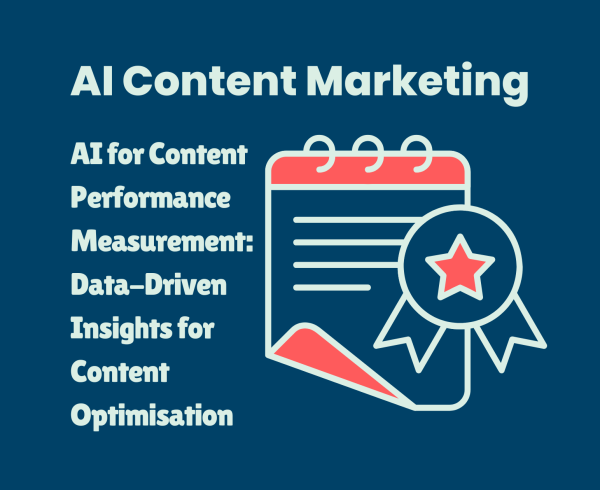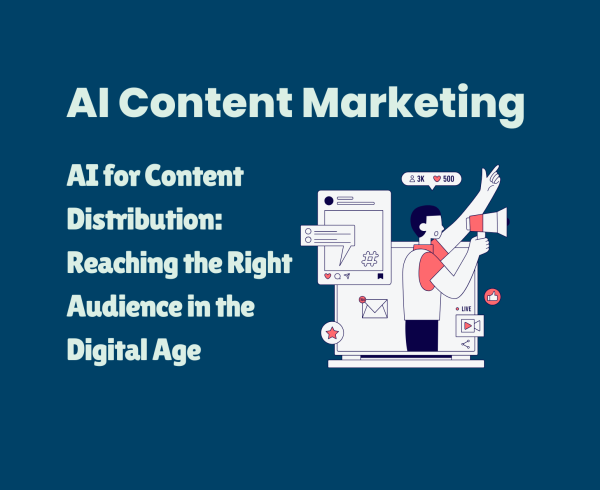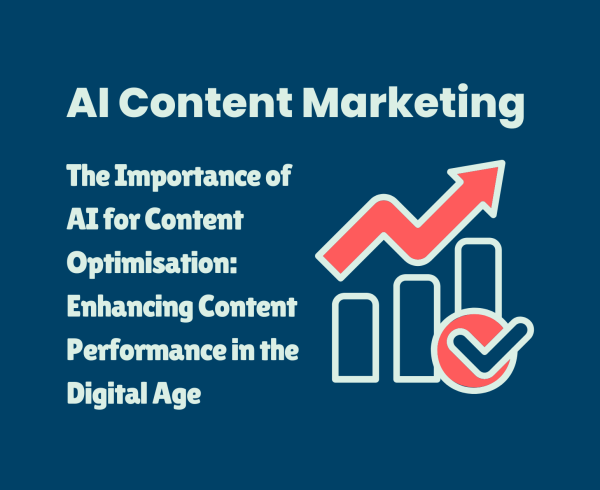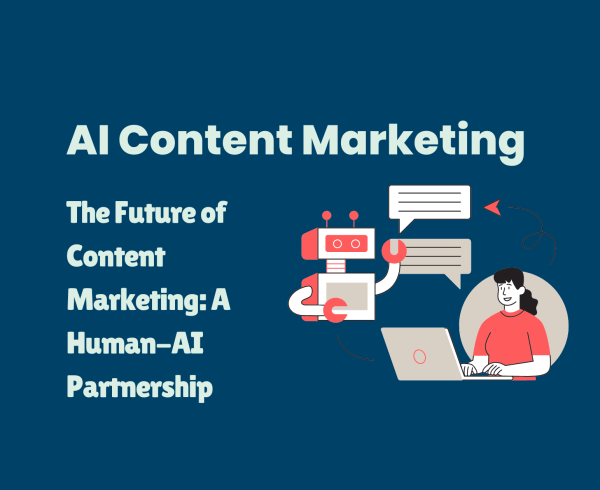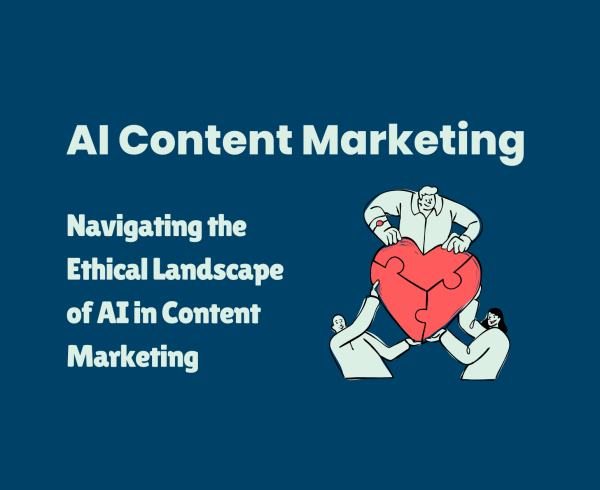In today’s digital landscape, consumers expect personalized experiences. Generic, one-size-fits-all content no longer resonates. AI empowers marketers to deliver the right message to the right audience at the right time, creating personalized content experiences that foster engagement, loyalty, and conversions. This article delves into the power of AI for content personalization, exploring its capabilities and providing a roadmap for implementation.
- Understanding the Importance of Content Personalization
Content personalization is the process of tailoring content to individual users based on their characteristics, interests, and behaviors. It’s about delivering the right message to the right person at the right time, creating a more relevant and engaging experience.
Benefits of Content Personalization:
- Increased Engagement: Personalized content is more likely to capture attention and resonate with users, leading to higher engagement rates.
- Improved Customer Experience: Personalized content creates a more satisfying and enjoyable experience for users, fostering loyalty and advocacy.
- Higher Conversion Rates: Personalized content guides users toward desired actions, such as making a purchase or signing up for a newsletter, resulting in higher conversion rates.
- Stronger Customer Relationships: Personalized content demonstrates that you understand and care about your audience, building stronger customer relationships.
- Improved Brand Perception: Personalized content creates a positive brand impression, positioning your brand as customer-centric and innovative.
- How AI Powers Content Personalization
AI enables marketers to personalize content at scale by analyzing vast amounts of data and automating personalization processes. AI algorithms can:
- Analyze User Data: AI analyzes user data, such as demographics, interests, behavior, and preferences, to create detailed user profiles.
- Segment Audiences: AI segments audiences based on shared characteristics and interests, allowing for targeted content delivery.
- Predict User Behavior: AI predicts user behavior, such as what content they are likely to engage with and what actions they are likely to take, enabling proactive personalization.
- Generate Personalized Content: AI generates personalized content, such as product recommendations, email subject lines, and website copy, tailoring content to individual needs and preferences.
- Optimize Content Delivery: AI optimizes content delivery, ensuring that users receive content through the most effective channels and at the optimal times.
- AI for Personalized Content Recommendations
AI-powered recommendation engines are a cornerstone of content personalization. These engines analyze user data to suggest relevant content, such as articles, products, and videos, increasing engagement and discovery.
- Collaborative Filtering: This technique recommends content based on the preferences of similar users. For example, if users with similar interests to yours have enjoyed a particular article, the AI will recommend that article to you.
- Content-Based Filtering: This technique recommends content based on the characteristics of the content itself. For example, if you have shown interest in articles about AI in marketing, the AI will recommend other articles on that topic.
- Hybrid Approaches: Many recommendation engines combine collaborative and content-based filtering to provide more accurate and diverse recommendations.
Examples: Netflix, Spotify, Amazon, and YouTube all use AI-powered recommendation engines to personalize content suggestions.
- AI for Personalized Content Experiences
AI enables marketers to personalize the entire content experience, from the website layout to the content itself. This creates a more engaging and relevant experience for each user.
- Dynamic Website Content: AI can dynamically adjust website content, such as headlines, images, and calls to action, based on user characteristics and behavior.
- Personalized Email Campaigns: AI can segment audiences and create targeted email campaigns that deliver personalized content and offers.
- Personalized Search Results: AI can personalize search results based on user location, search history, and preferences, providing a more tailored search experience.
- Personalized Product Recommendations: AI can recommend products that are relevant to user interests and needs, increasing the likelihood of purchase.
Examples: Salesforce, Adobe, and many e-commerce platforms use AI to personalize website experiences and product recommendations.
- AI for Personalized Content Journeys
AI can guide users through personalized content journeys, delivering the right content at each stage of the customer lifecycle. This nurturing approach builds relationships and guides users toward desired actions.
- Welcome Series: AI can trigger personalized welcome emails or onboarding sequences for new users, providing relevant information and guidance.
- Lead Nurturing: AI can nurture leads with personalized content that addresses their specific needs and interests, moving them through the sales funnel.
- Customer Retention: AI can identify at-risk customers and deliver personalized content to re-engage them and prevent churn.
- Upselling and Cross-selling: AI can recommend relevant products or services to existing customers, increasing customer lifetime value.
Examples: Marketing automation platforms and CRM systems often incorporate AI to personalize customer journeys.
- AI for Personalized Content Messaging
AI can personalize the messaging and tone of content to resonate with individual users, creating a more authentic and engaging experience.
- Tone and Style: AI can analyze user data to determine the optimal tone and style for each user, ensuring that content is communicated in a way that resonates with their preferences.
- Emotional Tone: AI can detect the emotional tone of user interactions and adjust the tone of content accordingly, creating a more empathetic and human-like experience.
- Language and Localization: AI can translate content into different languages and adapt it to different cultural contexts, ensuring that content is relevant and accessible to a global audience.
Examples: Grammarly and other writing tools use AI to personalize tone and style suggestions.
- AI for Personalized Content Delivery
AI optimizes content delivery, ensuring that users receive content through the most effective channels and at the optimal times.
- Channel Optimization: AI analyzes user data to determine the preferred channels for each user, delivering content through email, social media, push notifications, or other channels.
- Time Optimization: AI predicts the optimal times to deliver content to each user, maximizing engagement and minimizing disruption.
- Device Optimization: AI optimizes content for different devices, such as desktops, mobile phones, and tablets, ensuring a seamless and enjoyable experience across all devices.
Examples: Email marketing platforms and social media management tools use AI to optimize content delivery.
- AI for Personalized Content Measurement
AI provides insights into the performance of personalized content, allowing marketers to measure the effectiveness of their strategies and make data-driven decisions.
- Content Performance Analysis: AI analyzes content performance data, such as engagement rates, conversion rates, and ROI, to identify what’s working and what’s not.
- A/B Testing: AI can automate A/B testing of different personalized content variations, identifying the most effective versions for different user segments.
- Predictive Analytics: AI can predict the future performance of personalized content, allowing marketers to optimize their strategies and allocate resources effectively.
Examples: Google Analytics and other analytics platforms are incorporating AI to provide more sophisticated content measurement capabilities.
- The Future of AI for Content Personalization
The future of AI for content personalization is bright, with advancements in AI technology promising even more sophisticated and impactful personalization capabilities.
- Hyper-personalization: AI will enable even more granular personalization, tailoring content to individual needs and preferences in real-time.
- Emotional AI: AI will become more adept at understanding and responding to human emotions, creating more empathetic and human-like content experiences.
- AI-Generated Content: AI will generate personalized content, such as images, videos, and even entire articles, tailored to individual users.
- Case Studies in AI-Powered Content Personalization
Numerous companies are achieving remarkable results with AI-powered content personalization. Here are a few examples:
- Netflix: Netflix’s AI-powered recommendation engine is a key driver of user engagement and retention, personalizing content suggestions based on user viewing history and preferences.
- Spotify: Spotify’s personalized playlists, powered by AI, provide users with a unique and engaging listening experience, contributing to their success in the music streaming market.
- Amazon: Amazon’s personalized product recommendations and targeted promotions, driven by AI, increase sales and customer satisfaction, demonstrating the power of AI to enhance the e-commerce experience.
Conclusion
AI is revolutionizing content personalization, empowering marketers to deliver tailored content experiences that resonate with individual users. By leveraging AI’s capabilities, marketers can increase engagement, improve customer experience, and drive conversions. As AI technology continues to evolve, the future of content personalization is full of promise and potential. Companies that embrace AI and adopt a human-AI collaborative approach to content personalization will be well-positioned to thrive in the future of content marketing.

